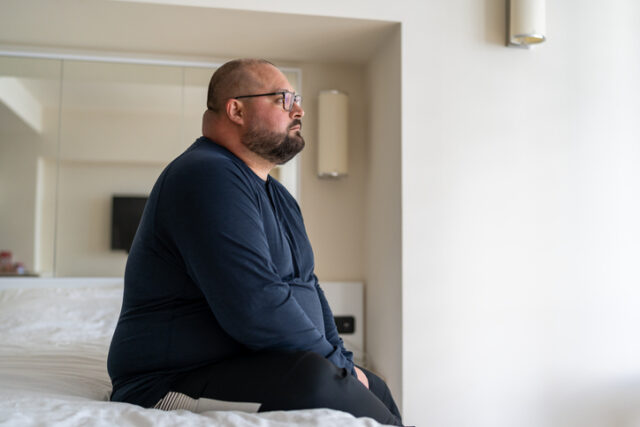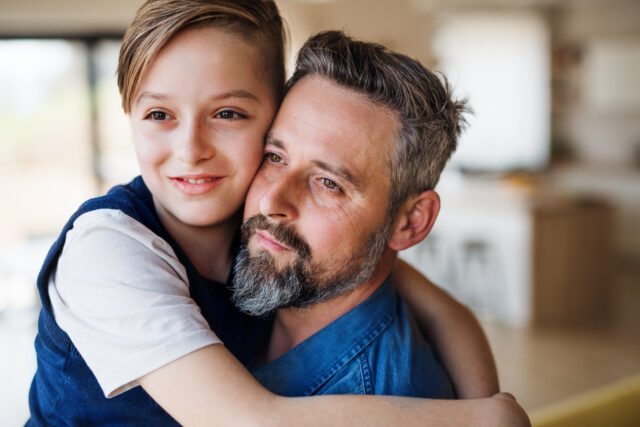If you’ve ever been told you’re “too cold” or “closed off,” there’s a good chance it’s not really a reflection of who you are deep down.

Chances are, it’s got more to do with how you were raised. Growing up without much affection can influence your instincts and personality in subtle but important ways. When you don’t have healthy emotional habits modelled for you from an early age, it’s hard to develop them on your own as you get older. If these experiences sound familiar, chances are, affection was sorely lacking in your childhood.
1. Compliments make you deeply uncomfortable.

When someone says something kind, your brain doesn’t know what to do with it. You might awkwardly laugh it off, change the subject, or secretly wonder if they’re joking. Compliments don’t land as nice; they feel suspicious. If affection wasn’t part of your upbringing, praise can feel foreign. You didn’t grow up getting warm validation, so now it just makes you squirm instead of smile. You’re not necessarily ungrateful, it’s just unfamiliar terrain.
2. You don’t naturally reach out to hug or touch people.

Physical affection doesn’t come easily to you. You’re not the person who instinctively goes in for a hug or grabs someone’s hand. When people do that to you, your whole body does a tiny internal flinch. It’s not because you don’t care—it’s just not your first language. If your childhood was low on cuddles or comforting touch, you likely built your sense of closeness around other things, like actions or unspoken loyalty.
3. You always feel like you have to earn love.

You don’t just assume people care about you. You feel like you’ve got to do something to be ‘worth it’—be useful, be helpful, be impressive. Affection doesn’t feel automatic, it feels transactional. That mindset often starts early, especially if love in your home was conditional or inconsistent. So now, even as an adult, you hustle for approval without even realising that’s what you’re doing.
4. Deep down, you think emotional needs are a bit embarrassing.

When someone talks about needing reassurance or connection, your instinct might be to roll your eyes, even if a part of you gets it. You were taught to suck it up, not open up. That discomfort with vulnerability comes from survival mode. When affection wasn’t there for you, needing it started to feel weak. So, now you try to be the strong one, even when you’re craving the same comfort you push away.
5. You’re hyper-independent, even when it hurts.

You pride yourself on not needing anyone. You don’t ask for help, you don’t lean on people, and you definitely don’t like admitting when you’re struggling. It’s you against the world, always. But here’s the thing—this level of self-reliance usually comes from not having support when you needed it. As time went on, you stopped expecting anyone to show up, so you became your own safety net.
6. You feel awkward during emotionally open moments.

If someone starts sharing something heartfelt or vulnerable, you suddenly don’t know where to look or what to say. You might try to joke your way out of it or shut the convo down fast. It’s not coldness, it’s discomfort. Growing up without warm, open emotional exchanges means you didn’t learn how to navigate them. So now they feel like unfamiliar territory where you don’t quite trust the footing.
7. You assume people will leave eventually.

No matter how good something feels, there’s often a little voice in your head reminding you not to get too comfortable. You expect the rug to be pulled at some point, so you brace yourself ahead of time. Emotional guarding usually forms in homes where love felt unreliable. You learned not to count on it sticking around. So now, even when it’s safe, you struggle to believe it’ll last.
8. You shut down when someone gets too close.

Intimacy sounds good in theory, but in practice? You find yourself pulling away, getting irritable, or suddenly feeling trapped. When someone genuinely wants to connect with you, it weirdly makes you panic. That reaction often stems from not knowing what healthy closeness looks like. If affection wasn’t safe or steady when you were young, you learned to keep people at a distance, even the good ones.
9. You’re not great at comforting other people.

When someone’s upset, you want to help, but you freeze up. You’re unsure what to say or do, and you often just hope they stop crying soon. It’s not because you don’t care; it’s because you weren’t shown how. Comfort was probably a DIY situation in your upbringing, so now it feels unnatural to step into that role. You may care deeply, but you doubt your ability to be what someone else needs in those moments.
10. You rarely talk about your feelings, even with people you trust.

You might be great at deep convos about life or big ideas, but when it comes to how you feel, you go quiet. Not because you don’t have feelings, but because putting them into words doesn’t feel safe or useful. If no one made space for your emotions growing up, you learned to keep them in. So now, even when people ask how you are, your go-to answer is usually “I’m fine,” even when you’re anything but.
11. You brush off kindness like it’s no big deal.

When someone goes out of their way for you, your instinct is to downplay it. You say “you didn’t have to do that” or “I’m not used to this,” and you mean it. Kindness can make you feel exposed. If affection and generosity weren’t regular parts of your early life, receiving them as an adult can feel overwhelming. You’re grateful, of course, but you don’t quite know how to let it in without questioning it.
12. You joke about being emotionally detached… a lot.

Humour is your armour. You’ll call yourself dead inside or say you “don’t do feelings,” and it gets laughs, but there’s truth in it too. These jokes help you keep things light when you’re not ready to go deep. It’s a common reflex for people who didn’t grow up with emotional safety. Joking is a way to acknowledge the gap without fully facing it. It keeps things bearable, but it can also block real connection if it becomes your default.
13. You find comfort in people who don’t expect much emotionally.

You tend to feel most at ease with people who are independent, private, or emotionally chill. That way, you don’t feel pressure to open up or perform feelings you’re not used to expressing. However, sometimes, that also means keeping yourself in emotionally limited dynamics. It feels safe, but it can also keep you from growing into something more open and connected—if that’s something you secretly want.
14. You’re careful not to need anyone too much.

You’ll let people in to a point, but beyond that? You pull back. You don’t want to become dependent, or worse—feel disappointed. So you keep just enough space to protect yourself from getting hurt. This fear of needing someone isn’t coldness. It’s armour built from a time when your needs weren’t met. It’s your nervous system saying, “We’ve done this before, and we’re not doing it again unless it’s safe.”




